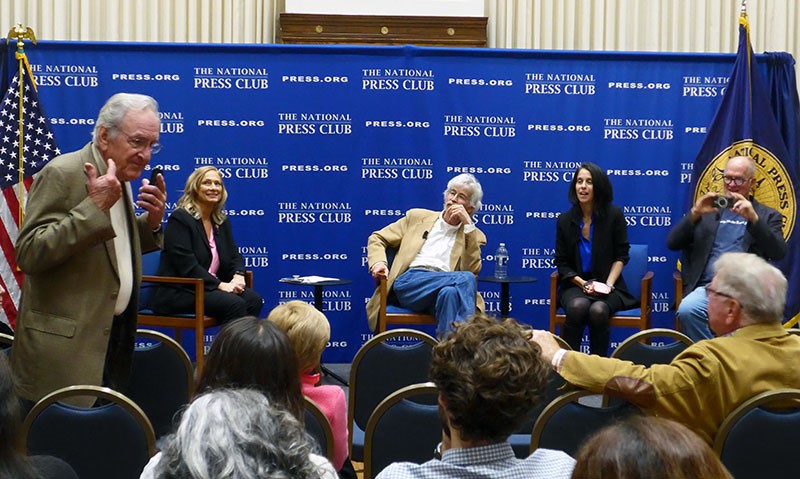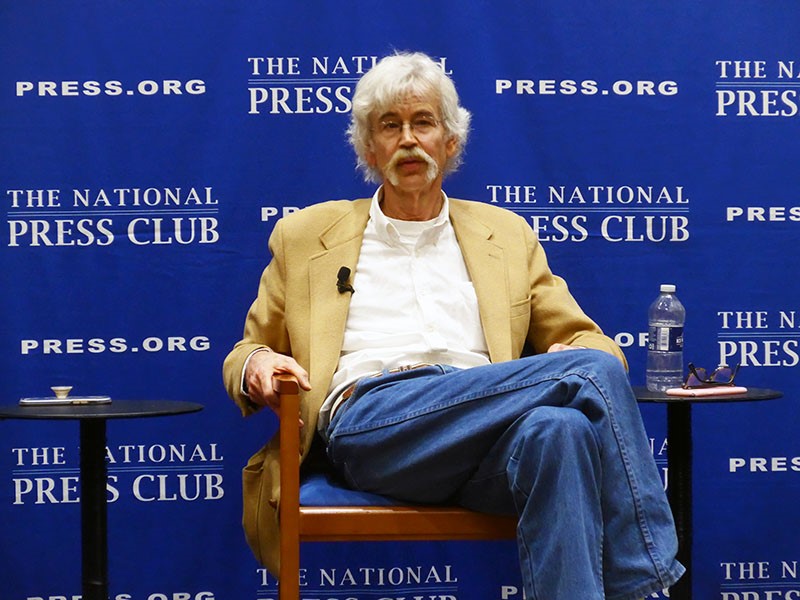Pulitzer-winning local news editor says people, not corporations, will save community news
Individuals will be the ones who save community newspapers, not major corporations, a Pulitzer Prize-winning editor said on Thursday night during a National Press Club Headliners event.
Speaking at a screening of the documentary “Storm Lake,” which chronicles the role of The Storm Lake Times in covering the small Iowa town and the newspaper’s efforts to stay afloat, editor Art Cullen bemoaned the death of local reporting and the growth of news deserts and “ghost newspapers.”
Cullen blamed businesses like Gannett for their role in newspapers “closing down left and right,” and said it is imperative for everyone to step up and do their part. The community is only as strong as its local newspaper, he said. Six county seats in Iowa alone lost their newspapers in 2021 and are becoming news deserts, which refers to communities no longer covered by local daily or non-daily newspapers.

“We have to save community newspapers,” Cullen said.
The movie by Beth Levison and Jerry Risius follows the small staff of The Storm Lake Times as they report on a wide swath of community news and events, all underpinned by the worry that the death of local news could lead to the death of American democracy.
Cullen and his colleagues are shown interviewing Democratic presidential candidates in the run-up to the 2020 election, holding candidate forums and reporting from the Iowa Caucuses. They also are caught in action as they stay on top of local politics and hold big agricultural companies to account, including Tyson Foods, which has a big presence in the community.
The Times experienced a major shift in March 2020, as its reporters sought to cover the onset of the COVID-19 pandemic and its impact on the community. State public health officials and major employers like Tyson were not transparent about the level of infection. At that stage of the documentary, interviews go mostly remote and there are visuals of Times front pages showing the growth in cases across Storm Lake as Tyson and the state finally start testing.

"When COVID happened, it was this really crystallizing moment,” Levison said. “If there was a real moment to show the role a newspaper can play in its community, this was it, and what it means for the community and how it holds the community together and reflects the community's experience.”
The Times itself has not been immune from financial challenges either. It was in danger of closing down, and still faced competition from the rival Storm Lake Pilot-Tribune, although Cullen said that competition just meant both papers were “bleeding each other to death.”
A donor from Los Angeles stepped in to provide the capital needed to save The Times—and help it buy its rival.
Cullen said it will need people to invest in local news, too, and by buying the newspapers in their community rather than relying on national outlets, social media and the internet. And while the price may be cheap, its impacts are outsized, he said.
“For less than the price of a cup of coffee, you can save democracy,” Cullen said.
